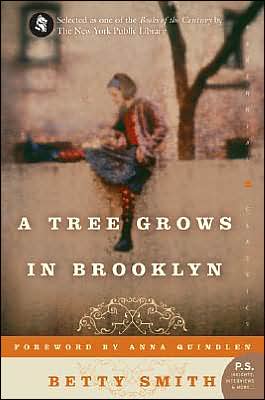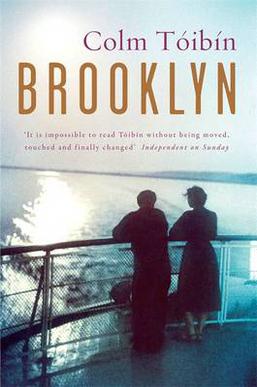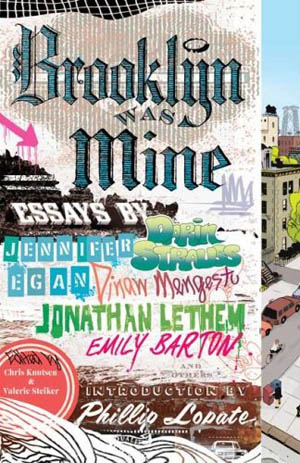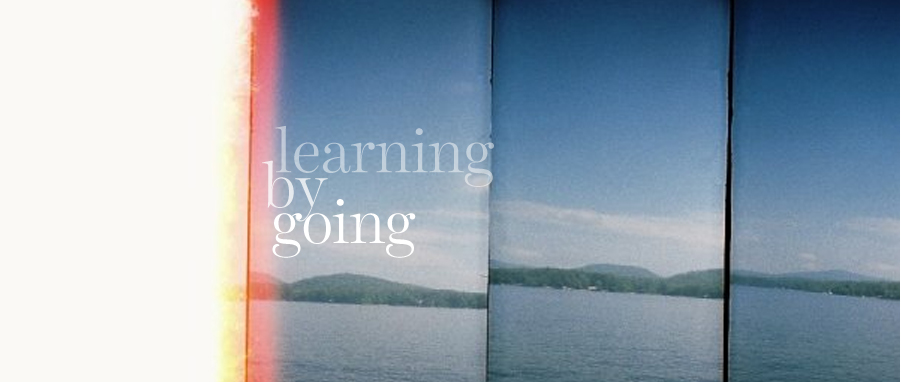(Editor's note: This is part two of Leigh Anna's exploration of losing her dogs. Part One, Samus, can be found here.)
2011 stunk. It has taken me many months to even get to the place where I can write about this without completely losing it. Some of you already know how my little family was rocked this past year when little Samus, my sweet boxer dog, passed away suddenly. Little did we know that just 7 months and two days later, we’d be saying goodbye to our other sweet baby, my dear boy Max. From the beginning, I was absolutely in love with that boy. We drove 4 hours in the pouring rain one night to Memphis to pick him up. He was so fat, with so many wrinkles. I was so excited . . . and a little discouraged when I tried to get him to sit in my lap on the way home and he just moved to the other side of backseat. We had a dog that didn’t like to cuddle, or so it seemed.
 Max quickly became a mama’s boy. Contrary to my observation on that ride home, he loved to cuddle . . . and boy was he lazy. Samus wanted to play all the time and all Max wanted to do was lay on the couch. The only issue we ever had with him was potty training. He was HORRIBLE! He would leave a trail through the house . . . he didn’t know how to stand still while peeing! I would get soooo mad! I finally resorted to buying toddler undies for him and that was the only thing that finally worked. He was so cute in those undies.
Max quickly became a mama’s boy. Contrary to my observation on that ride home, he loved to cuddle . . . and boy was he lazy. Samus wanted to play all the time and all Max wanted to do was lay on the couch. The only issue we ever had with him was potty training. He was HORRIBLE! He would leave a trail through the house . . . he didn’t know how to stand still while peeing! I would get soooo mad! I finally resorted to buying toddler undies for him and that was the only thing that finally worked. He was so cute in those undies.

 In 2007, Chris and I decided to quit our jobs, move to Atlanta, and go back to school. The day we moved, we noticed Max wasn’t feeling too good. Within two days, he stopped eating and we knew something had to be wrong. We took him to the vet, where they started running tests on him. We left the vet without a diagnosis but they were pretty sure he had Lymphoma. The test would take two weeks to find out for sure.
In 2007, Chris and I decided to quit our jobs, move to Atlanta, and go back to school. The day we moved, we noticed Max wasn’t feeling too good. Within two days, he stopped eating and we knew something had to be wrong. We took him to the vet, where they started running tests on him. We left the vet without a diagnosis but they were pretty sure he had Lymphoma. The test would take two weeks to find out for sure.
 My boy got so sick. He didn’t eat for those two weeks and lost 10 lbs. We came so close to losing him . . . the test finally came back and it was a huge blow. He not only had lymphoma in his chest, but it was stage 4, B cell, the worst kind. They advised us that most dogs with that kind of cancer only last another year at best, with chemo. But we couldn’t lose our baby without trying to help; he was only 5 years old. We started chemotherapy immediately and after 6 months of treatment, he was in full remission. Max was a trooper . . . my miracle dog. We got lucky and the lymphoma never came back.
My boy got so sick. He didn’t eat for those two weeks and lost 10 lbs. We came so close to losing him . . . the test finally came back and it was a huge blow. He not only had lymphoma in his chest, but it was stage 4, B cell, the worst kind. They advised us that most dogs with that kind of cancer only last another year at best, with chemo. But we couldn’t lose our baby without trying to help; he was only 5 years old. We started chemotherapy immediately and after 6 months of treatment, he was in full remission. Max was a trooper . . . my miracle dog. We got lucky and the lymphoma never came back.

 When we lost Samus, our world was turned upside down. We all grieved so hard for the loss, Max included. He slept by the front door; he’d wake me up laying on my chest at 3 am just staring at me; he’d drag us up and down the alleys and streets looking for her; he would stop in his tracks when he heard another dog that sounded like her. It made us so sad to see him having such a hard time with losing her. That’s one reason we decided to get Rilke, 6 weeks after we lost our girl. Max needed a buddy as much as we did. He was so good with her . . . she was such a playful puppy . . . but he never got mad at her. I think seeing the two of them together, I really started to notice how much Max had aged.
When we lost Samus, our world was turned upside down. We all grieved so hard for the loss, Max included. He slept by the front door; he’d wake me up laying on my chest at 3 am just staring at me; he’d drag us up and down the alleys and streets looking for her; he would stop in his tracks when he heard another dog that sounded like her. It made us so sad to see him having such a hard time with losing her. That’s one reason we decided to get Rilke, 6 weeks after we lost our girl. Max needed a buddy as much as we did. He was so good with her . . . she was such a playful puppy . . . but he never got mad at her. I think seeing the two of them together, I really started to notice how much Max had aged.
 This past Thanksgiving came and went quietly. That Saturday, we woke up to a beautiful morning. The temperature was supposed to be in the 60′s and we knew that it wouldn’t last much longer. We decided to take the dogs out to Fire Island, a beautiful state park beach that allows dogs in the winter months. It was Rilke’s first time to the beach and we were all excited as we packed up in the car and headed out. It was absolutely gorgeous outside and we were just so happy to be together. This photo was from that day . . . I had no idea it would be one of the last photos I would take of my sweet boy:
This past Thanksgiving came and went quietly. That Saturday, we woke up to a beautiful morning. The temperature was supposed to be in the 60′s and we knew that it wouldn’t last much longer. We decided to take the dogs out to Fire Island, a beautiful state park beach that allows dogs in the winter months. It was Rilke’s first time to the beach and we were all excited as we packed up in the car and headed out. It was absolutely gorgeous outside and we were just so happy to be together. This photo was from that day . . . I had no idea it would be one of the last photos I would take of my sweet boy:
 We had hiked about 2 miles from our car, down the beach, when our world came crashing in on us. Max had been so happy, running, sniffing, playing . . . when all of a sudden, he fell over and started having a major grand mal seizure. Right there where the water hits the sand, on the most beautiful beach, my dog was dying and I felt so helpless. People came running from everywhere, and Chris and two other men started giving him CPR. After what seemed like an eternity, he started breathing again. Someone called the rangers for us and they came and picked us up in a SUV to take us back to our car. Max was awake but out of it for sure. We took him to the nearest pet hospital, only to have them tell us things like cancer, brain tumor, epilepsy, infection . . . our wonderful trip to the beach had gone so bad so quickly.
We had hiked about 2 miles from our car, down the beach, when our world came crashing in on us. Max had been so happy, running, sniffing, playing . . . when all of a sudden, he fell over and started having a major grand mal seizure. Right there where the water hits the sand, on the most beautiful beach, my dog was dying and I felt so helpless. People came running from everywhere, and Chris and two other men started giving him CPR. After what seemed like an eternity, he started breathing again. Someone called the rangers for us and they came and picked us up in a SUV to take us back to our car. Max was awake but out of it for sure. We took him to the nearest pet hospital, only to have them tell us things like cancer, brain tumor, epilepsy, infection . . . our wonderful trip to the beach had gone so bad so quickly.
We did a few tests to check his bloodwork and rule out an infection. They said the only way we would know if he had brain cancer would be to do an MRI, which would cost thousands. We hoped for the best, got a prescription for anti-seizure meds and went on our way. We felt so lost, and I was just a ball of nerves. That night we cuddled him and loved on him and he seemed ok, just tired. The next morning, we went for a walk, ate breakfast, and he had his smoothie and two treats. His head seemed to be bothering him, he kept scratching and rubbing it. He laid down in the sun, on the bed, probably his favorite place in the world, and went to sleep. About 30 minutes later, he woke up, had another seizure, and passed quietly in Chris’s arms.


 That weekend was horrible. But . . . looking back, both of us had seen it in his eyes. He lost a part of himself, a spark, when Samus passed away and he never got it back. Even though losing Samus was heartbreaking, it made me appreciate Max so much more those last few months. I am thankful that he didn’t seem to suffer much; I am thankful that we were with him, that he spent his last full day on the beach, and that he didn’t die in a hospital. I am also thankful that I did not have to make the decision with either of my dogs. God knew that would be a decision I just could not have made.
That weekend was horrible. But . . . looking back, both of us had seen it in his eyes. He lost a part of himself, a spark, when Samus passed away and he never got it back. Even though losing Samus was heartbreaking, it made me appreciate Max so much more those last few months. I am thankful that he didn’t seem to suffer much; I am thankful that we were with him, that he spent his last full day on the beach, and that he didn’t die in a hospital. I am also thankful that I did not have to make the decision with either of my dogs. God knew that would be a decision I just could not have made.


 I loved Samus dearly, but Max . . . that boy was MY boy. I loved the way he woo-wooed when he was excited, the way he demanded a treat around lunchtime every day, the way he nibbled on a toy, the way he said “I love my mama,” and the way he made me massage him every night. He was spoiled all right, but he was one of the best relationships that I have ever experienced and if I could do it all over again, I would in a heartbeat. I’ve had dogs my entire life but there was just something special about my relationship with Max. I would have done just about anything for that dog. Looking back at these photos, I feel like I was at my happiest when he was by my side . . . or in my lap.
I loved Samus dearly, but Max . . . that boy was MY boy. I loved the way he woo-wooed when he was excited, the way he demanded a treat around lunchtime every day, the way he nibbled on a toy, the way he said “I love my mama,” and the way he made me massage him every night. He was spoiled all right, but he was one of the best relationships that I have ever experienced and if I could do it all over again, I would in a heartbeat. I’ve had dogs my entire life but there was just something special about my relationship with Max. I would have done just about anything for that dog. Looking back at these photos, I feel like I was at my happiest when he was by my side . . . or in my lap.
After losing both of our “kids” that we have had for the past 9.5 years, Chris and I just felt lost. Our whole family dynamic changed. Now Rilke was the only dog, and we had only spent a few months with her. She still doesn’t know the kind of things our other two had learned through the years---it’s like starting completely over. But I am so thankful we got her when we did or else our house would be way too quiet. We have since added little Bronson to our family. It’s not the same around here . . . but I hope one day we’ll have the connection with the new ones like we had with Samus and Max.
 Once again, in 2011 I was reminded that I need to appreciate the time I am given. I am so thankful that I got to experience Max’s amazing personality and be loved by him. Time goes by in a flash . . . 9.5 years of my life was gone in 7 months and 2 days. I am trying to remember that and really live my life in a way where I have no regrets and really love on my friends and family as much as I can. In the end, that’s really all that matters.
Once again, in 2011 I was reminded that I need to appreciate the time I am given. I am so thankful that I got to experience Max’s amazing personality and be loved by him. Time goes by in a flash . . . 9.5 years of my life was gone in 7 months and 2 days. I am trying to remember that and really live my life in a way where I have no regrets and really love on my friends and family as much as I can. In the end, that’s really all that matters.
 I miss you dearly Max . . . I still think about you every day. I hope you and Samus are running and playing on a beach up in heaven somewhere. One of these days, when I close my eyes for the last time . . . I really hope you two come and tackle me with kisses. Call me crazy, I don’t care.
I miss you dearly Max . . . I still think about you every day. I hope you and Samus are running and playing on a beach up in heaven somewhere. One of these days, when I close my eyes for the last time . . . I really hope you two come and tackle me with kisses. Call me crazy, I don’t care.
 I've always considered myself to be a curious sort of person. I’m not afraid to ask questions, to examine different options, and to experiment until I find the right answer. Perhaps that’s to be expected when your parents are a Librarian and a Physicist.
I've always considered myself to be a curious sort of person. I’m not afraid to ask questions, to examine different options, and to experiment until I find the right answer. Perhaps that’s to be expected when your parents are a Librarian and a Physicist.
























































